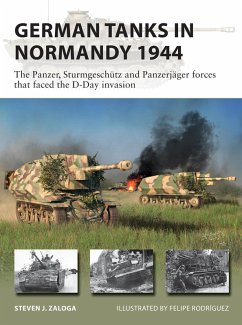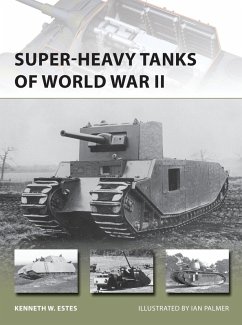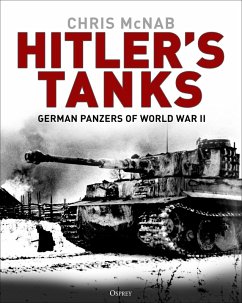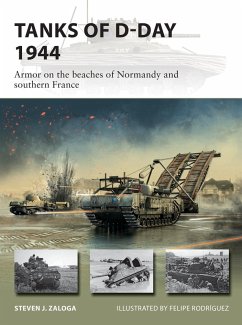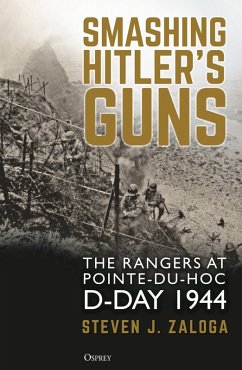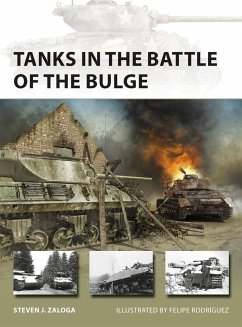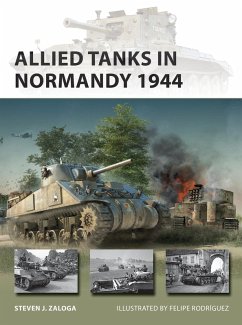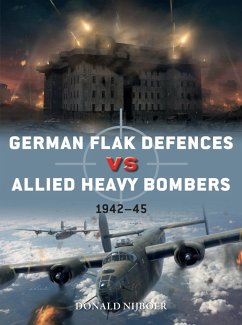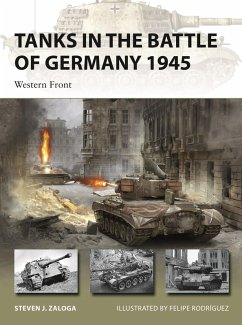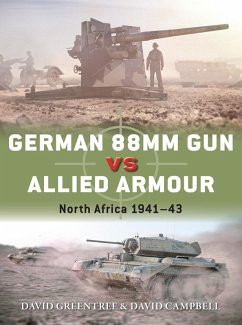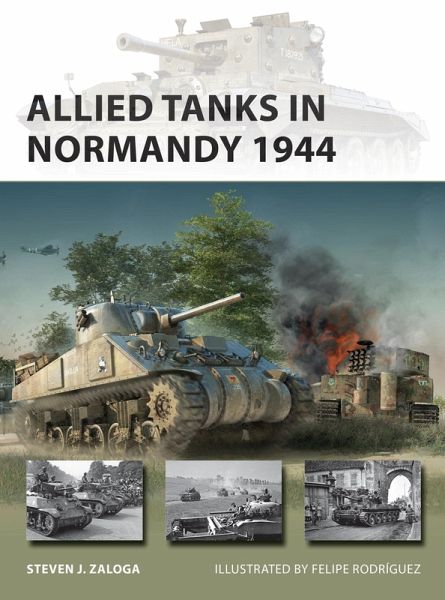
Allied Tanks in Normandy 1944 (eBook, PDF)
Versandkostenfrei!
Sofort per Download lieferbar
9,95 €
inkl. MwSt.
Weitere Ausgaben:

PAYBACK Punkte
5 °P sammeln!
A concisely detailed guide to the Allied tanks that fought from D-Day to the break out from Normandy, their qualities, numbers and performance, and how they were used on the battlefield.When Allied tanks began to roll off the landing craft on D-Day, it marked the start of one of the great periods of tank warfare in World War II. Often outgunned by the German Panzers, and fighting in the close confines of bocage country, they nevertheless managed to break out of Normandy and begin the liberation of Europe. It was a battle that was dominated by the Americans' legendary Sherman, but also saw a wi...
A concisely detailed guide to the Allied tanks that fought from D-Day to the break out from Normandy, their qualities, numbers and performance, and how they were used on the battlefield.
When Allied tanks began to roll off the landing craft on D-Day, it marked the start of one of the great periods of tank warfare in World War II. Often outgunned by the German Panzers, and fighting in the close confines of bocage country, they nevertheless managed to break out of Normandy and begin the liberation of Europe. It was a battle that was dominated by the Americans' legendary Sherman, but also saw a wide and complex range of armour committed to battle across the many armies involved, from British Churchills and special-purpose 'Funnies' to the Canadians' Ram tank.
This book explains the qualities, strengths and weakness of the major British and US tank types as well as associated Allied units in Normandy including those of the Canadians, Poles and French, and describes how they really fought. It discusses the organization and equipment of the units, providing thumbnail sketches as well as statistical data on the types and categories of AFVs that saw action. This is a handy and concise guide for military historians, wargamers and military modelers interested in tank warfare of World War II.
When Allied tanks began to roll off the landing craft on D-Day, it marked the start of one of the great periods of tank warfare in World War II. Often outgunned by the German Panzers, and fighting in the close confines of bocage country, they nevertheless managed to break out of Normandy and begin the liberation of Europe. It was a battle that was dominated by the Americans' legendary Sherman, but also saw a wide and complex range of armour committed to battle across the many armies involved, from British Churchills and special-purpose 'Funnies' to the Canadians' Ram tank.
This book explains the qualities, strengths and weakness of the major British and US tank types as well as associated Allied units in Normandy including those of the Canadians, Poles and French, and describes how they really fought. It discusses the organization and equipment of the units, providing thumbnail sketches as well as statistical data on the types and categories of AFVs that saw action. This is a handy and concise guide for military historians, wargamers and military modelers interested in tank warfare of World War II.




